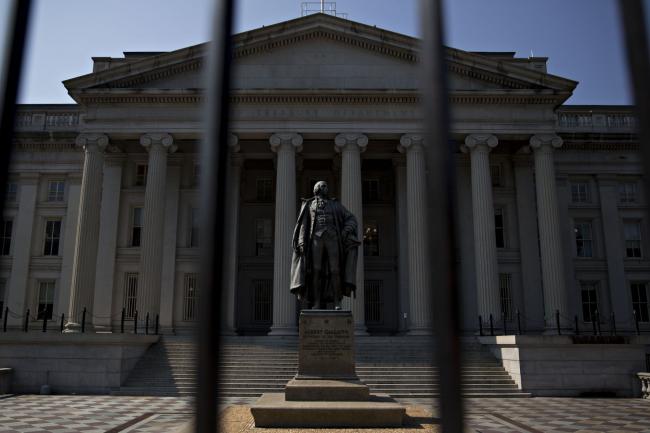(Bloomberg) -- The nonpartisan Congressional Budget Office warned that the federal government would be at risk of a payment default as soon as July if lawmakers fail to raise the debt limit.
The Treasury Department is currently using accounting maneuvers to keep making good on federal obligations, after hitting the statutory debt ceiling last month. While Treasury Secretary Janet Yellen signaled at the time those measures would last at least until early June, Wednesday’s CBO estimates offer an updated timeline.
“If the debt limit remains unchanged, the government’s ability to borrow using extraordinary measures will be exhausted between July and September 2023,” the CBO estimated.
The CBO’s projection for the so-called X-date will provide investors with a new focus for when the federal government will be at risk of a payments default. Yellen on Tuesday reiterated her warning that an “economic and financial catastrophe” would ensue if Congress doesn’t act.
Read More: Yellen Sees Higher Yields ‘In Perpetuity’ If No Debt-Limit Hike
The CBO highlighted that the “Treasury could run out of funds before July” if tax receipts — including in the crucial April time frame — come in weaker than it projects.
Republicans, who control the House of Representatives, have threatened to hold off on lifting the debt ceiling until Democrats agree to cut future spending. President Joe Biden has refused to negotiate over the issue, but has opened parallel talks on deficit reduction with Speaker Kevin McCarthy.
The government hit the statutory limit for outstanding debt, $31.4 trillion, on Jan. 19. Wall Street analysts have estimated that the extraordinary accounting measures that the Treasury has available to it to keep under the limit amount to about $500 billion.
The CBO’s new budget estimates provide a baseline for lawmakers to engage on drafting legislation for the 2024 fiscal year. The White House is expected to release its own budget plan on March 9, while Republicans aim to pass theirs by April.
©2023 Bloomberg L.P.

